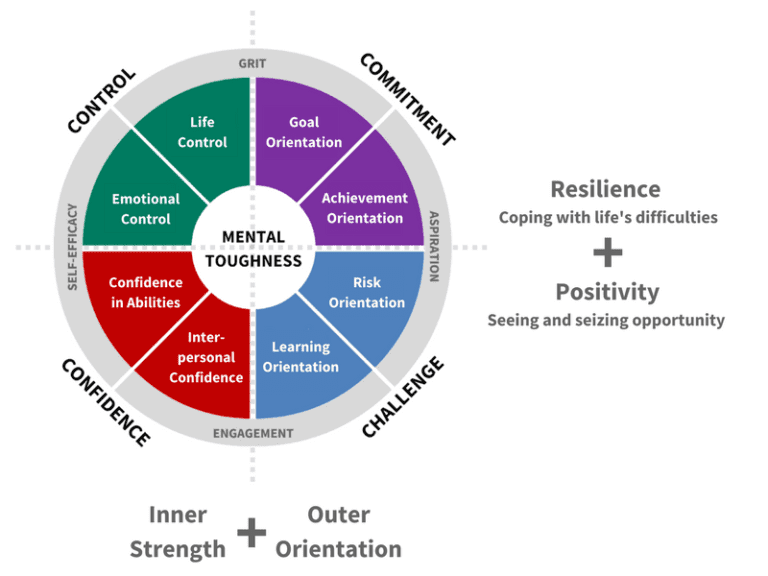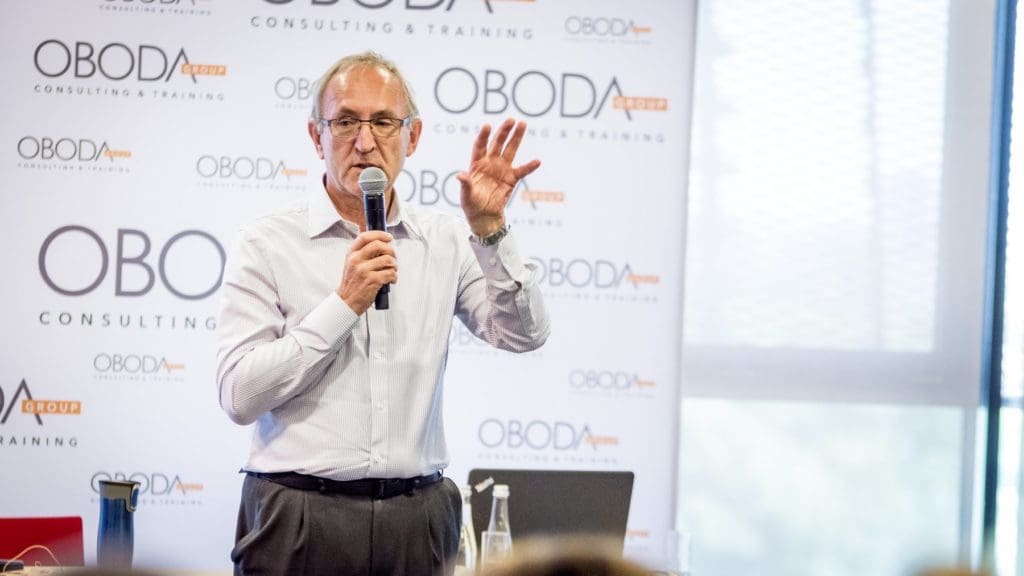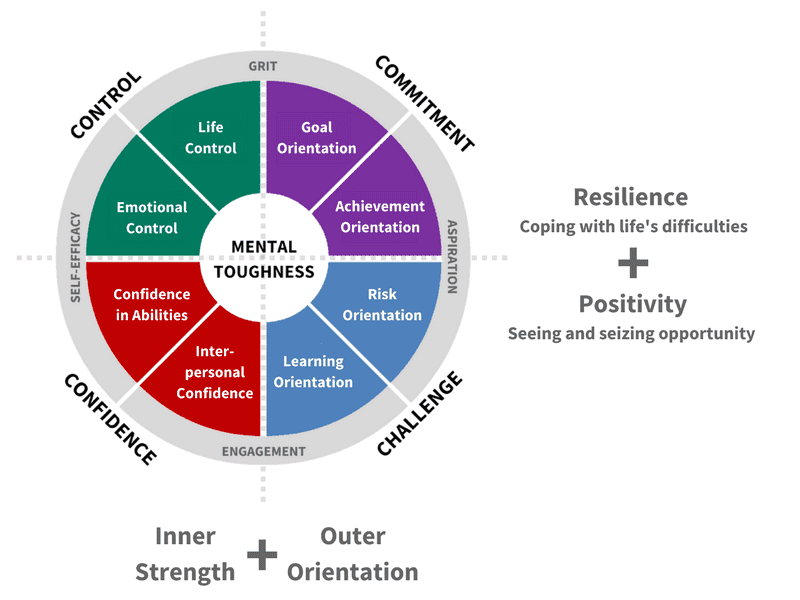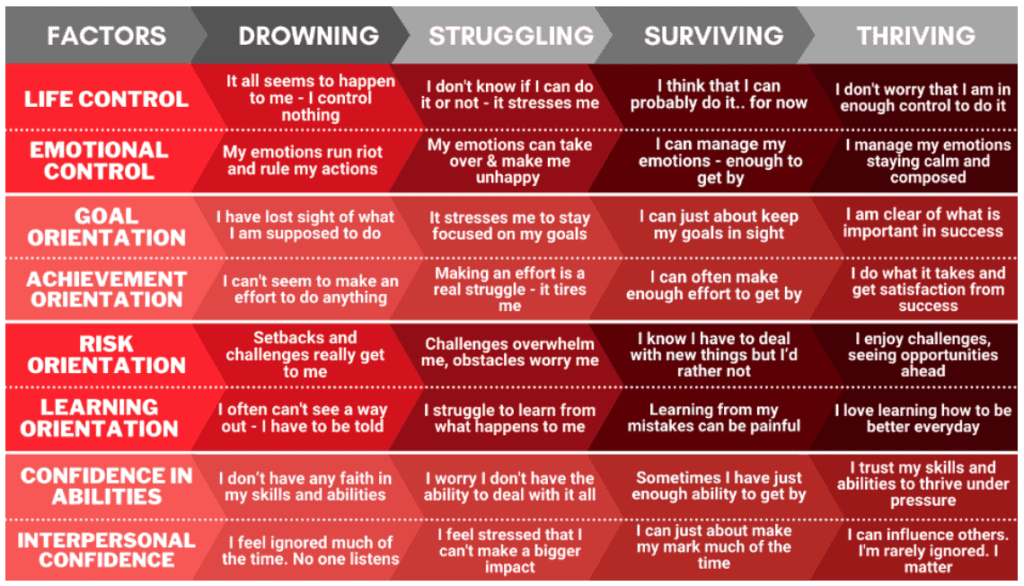
Sports Psychology Tips: Mental Toughness is a Hugely Valuable Trait
But is misunderstood by many people
If you could improve your performance levels by 5-10% what difference would it make to your life? What about 20-25% difference how would that make you feel?
Would you win more prize money? Would you have the pleasure of standing on the podium more? Would you win more trophies and experience the nerves when standing up giving more victory speeches?
Well by understanding what mental toughness actually is, and to seek support to develop the trait you could make a positive shift in the right direction.
Why?
Mental Toughness actually accounts for up to 25% variation in performance according to research carried out by Professor Peter Clough and his colleagues.
Yet why does Mental Toughness get a bad rap? Here are 2 reasons in my book.
- Words are very powerful and the word “toughness” is misinterpreted.
- Pundits and sporting celebrities have a big influence on people and use the words “mental toughness” and “mental weakness” a lot and commonly their quotes are incorrect.
Other questions I often get asked in relation to Mental Toughness are?
What actually is Mental Toughness?
What is NOT Mental Toughness?
What are the myths surrounding Mental Toughness?
Does Mental Toughness differ from Resilience?
If you continue reading the following statements from world leading experts Doug Strycharczyk, Professor Peter Clough and Dr John Perry who I have interviewed in the Demystifying Mental Toughness podcast you’ll find out more.

“Mental Toughness isn’t about being masculine. Just to kill one myth. We know that the mental toughness profiles for white male men and women are virtually identical. It’s definitely not a male concept, it seems to apply equally to males and females.
It is about how we respond, mentally, to things that happen to us. So it’s about our mindset and our mental responses.
It’s about being tough in a resilient sense of the word. And it’s important, it’s always been important. It’s probably especially important at this time because we’re more concerned usually about our mental responses in times of stress pressure crisis and chaos.
Professor Peter Clough and a number of researchers have looked at what mental toughness is and he worked out that it had four key elements, which psychologists called constructs. Control, commitment, challenge and confidence. Control really is describing the extent to which you’re failing sufficient control of your life and your circumstances, to be able to achieve what you want to achieve.
So that people can understand there is a relationship between resilience and mental toughness, mental toughness is a much wider concept, and it’s generally a more fundamentally valuable concept. Resilience is simply the ability to recover from an adverse situation. And the way that the definition is phrased tells me it’s a passive concept so it’s describing your reaction to something that has happened.”
To hear more on Doug’s thoughts why not tune into the Demystifying Mental Toughness Podcast

DC – “Where does mental toughness fit into those Grimsby town players whose performance dipped, when they underperformed over a period of time?”
JP – “I’ve gone on the journey from thinking it was a motivational aspect to actually seeing it as more of a way of integrating motivation into a stress response. I thought it was motivational because I thought well these guys just need to try harder. They need to find that extra gear. They need to be a little bit quicker. You know when you watch the player. If they’re closing down a full back it’s put some pressure on them in their own half. The example I often give to athletes is you can tell if somebody’s running with genuine intent, because they believe they’re going to affect something there, or whether they’re going through the motions. And the example I often give is, if you’ve ever seen someone running for the bus. You can always tell the difference between the person running for the bus if they don’t think they’re really going to catch it, they wont pick up the pace to see what happens. Versus the person who genuinely thinks they’re going to get the bus.
But actually there is more to it, belief comes into it, it starts to become a confidence thing, but also the context is important, and the context is related to the pressure component.
I really love looking at individual differences in personality, if any of the listeners have ever been in a high performance dressing room, you could have 20 different people in that dressing room, but the individual responses are very different. Why is it that some players actually see this situation when they’re playing against a team that has previously rejected them. They’ve got opposing fans who think, this guy’s rubbish. What’s he gonna do. They’ve got their own stresses that the team isn’t performing very well. And if the last few games haven’t gone particularly well so there’s so many different or stress contexts in there. And on that day. Fortunately, the players that showed up that day, rather than kind of running away from that stress, they’re able not to just get through it, battle through it, which we all talk about resilience.
But it’s not about getting through it. Those performances are when you bring your whole self into that performance and you thrive on every emotion that you feel. And the more I understand those experiences when watching games, the more I start to see it as a response to a pressure situation rather than it being about really wanting to do well or the more simple motivational context.”
To hear more on John’s thoughts why not tune into the Demystifying Mental Toughness Podcast.

PC – “So I’m Professor Peter Clough and I developed, along with other colleagues the Mental Toughness, four C’s model. We’ve been doing this research since the 90s.
I played professional sport for a time, professional rugby league. And it occurred to me as I stood out on the wing, being unhappy in the rain, I wasn’t tough enough to do it. So yeah, the fundamental question is, I have some talent, good hands and quick. Why can’t I hack it? So that was a question that I asked myself. So I left school really early and I went back to university, the route took a PhD of all things, looking at the psychological aspects of marathon running.
So the theme was always there. I’m interested in people in extreme situations, but as my thinking developed, and as my career developed, and as I just got older, and became more interested in mental toughness in a wider sense. So we progressed it, broadened it away from sport. Now most of our work is in business in education. And in well-being.
Our mental toughness contributes to our understanding of individuals. It’s not the answer to everything. Yes, it’s a part of the jigsaw. But people are really fascinating. The more you deal with people on a one to one basis, the more you understand it is very complex. And mental toughness, accounts for quite a lot of areas. It does a job. But it’s by it’s by no means the full answer. For example, marathon runners are more mentally tough than people who don’t take part in extreme exercise. But then surgeons, for example, are even tougher, sometimes what people think is tough isn’t tough. What people think is mentally sensitive, isn’t sensitive. And hopefully our mental toughness model helps explain behaviour.”
DC – “I suppose the other thing as well is that you might be a marathon runner or a surgeon and be mentally tough, but then that isn’t necessarily going to be a positive thing for your life if you haven’t got self awareness.”
PC – “Absolutely. I’ve just been talking to colleagues about a mental toughness masterclass looking at development for the mentally tough, because you might be mentally tough, but they’re not perfect. Yes they can withstand pressure, so they have an advantage in these difficult times. But they’re not the end product.
Sometimes if you’re really mentally tough, you might not explore some of the other ways of doing stuff. Because what you’ve got works, it works well, most of the time, but the world has suddenly changed. Yes a mentally tough person can cope with change. But yeah, as you rightly alluded to, that mean that they’re going to change themselves? So self awareness is key. We’re not saying if you’re at 10/10, in mental toughness, you’re a finished product, and if you’re a 1/10, if you’re really sensitive, there’s something wrong with you it is understanding what you are, and then working with what you’ve got.
The mentally tough people deal with stress more effectively. Generally, across the board. We see we see that time and time again. But then they can sometimes snap or bend in the wind whereas if you’re mentally sensitive, and emotional everything can become chaos. Everything can be worrying but you get used to it.
If you’re a mentally tough person, something like a significant bereavement can completely topple you, because you’ve never had to deal with those feelings of being out of control. You can’t control everything. There are limitations to every model to every psychological variable, and what they come back to is understanding yourself, we always come back to it – self-awareness. You need to know where your limits are and be pleased with what you’ve got.”
DC – “Often you find people compare resilience with mental toughness. And tar it with the same brush, how does it differ?”
Resilience is to some extent, an old fashioned term. Resilience is passive too. There are lots of different definitions and there’s really good research going on. So I’m not going to poopoo what people doing. Resilience is about surviving pressure, setbacks, dealing with the horrors until it goes away. It’s an engineering term. It’s like a bridge. That doesn’t seem to me to capture what the human experience is. Some people prosper under pressure. Some people seek out pressure. Nobody I know can avoid stress. You could do it sometimes, but we’re stress averse. We seek out challenges and resilience can’t really explain that.”
To hear more on Peter’s thoughts why not tune into the Demystifying Mental Toughness Podcast.
Now that you are more familiar with the concept of Mental Toughness please take a look at the image below (courtesy of AQR International) highlighting the fact that the 4C’s where commitment, control, confidence and challenge of the Mental Toughness Model each have 2 inner measures.

Below are some insights into what a mentally tough and a mentally sensitive person may look like in each of the measures.
CONTROL – Emotional Control
Mentally Tough Individual
Whilst you may worry about important aspects of your life or sport at times, you do not usually get this out of proportion. You are often able to adjust your emotional responses to different situations and, much of the time, mask any nervousness that you may feel when you are competing. You will normally remain cool, calm and collected but from time to time you may have difficulty in controlling your emotions. These emotional episodes may surprise team-mates, friends or coaches.
Mentally Sensitive Individual
You are quite an anxious individual and you may worry unduly. You may also find it a little difficult to control your emotions. You can find it difficult to adjust your emotional responses to different situations and will usually reveal to others any nervousness that you feel.
CONTROL – Life Control
Mentally Tough Individual
Most of the time you believe in what you do. You are influential when something needs to be done. Obstacles and setbacks rarely stop you from what you are doing. You possess a “can do” attitude.
Mentally Sensitive Individual
You may not fully believe that what you do really makes a difference, sometimes feeling that you are simply ‘going through the motions”. You tend to think that what you do does not matter. You rarely feel influential when something needs to be done and will often feel that what you do makes little difference. Obstacles and setbacks can derail you.
COMMITMENT – Goal Orientation
Mentally Tough Individual
You like to know what’s expected of you. You enjoy having a goal to work towards. When taking on tasks and activities you will have a good idea of what a successful outcome will be. These are a source of motivation for you, where you can visualise success and often imagine what success feels like. When you achieve a goal, you often feel driven to do better next time.
Mentally Sensitive Individual
You rarely set goals. When you have a task or activity to do you can get in your own way finding it hard to understand what success is. Focusing more on failing and what you won’t achieve. You may be frightened to set goals due to fear of failure.
COMMITMENT – Achievement Orientation
Mentally Tough Individual
You will generally work harder than most to achieve your goals – whether they are set by you or my others. You will not be easily distracted from your goals although this can happen. Others are likely to see you as conscientiousness and reliable even when you have a lot of things to do. You tend to like being seen as committed and tenacious.
Mentally Sensitive Individual
You will generally give up more easily than most when given tasks and activities especially if you have setbacks or if there are fairly high levels of pressure. You may find it difficult to maintain concentration and to maintain mental concentration for more than a short period. You can often feel tired after a moderate amount of effort.
CHALLENGE – Risk Orientation
Mentally Tough Individual
You are someone who deals well with a challengs, change, and variety. You will often try new things, carry out new activities, meet new people, etc especially when it exposes you to new and different experiences. You are quite happy to take risks and attempt things that many find too challenging. You will often have a go at something that would otherwise frighten you.
Mentally Sensitive Individual
You are someone who can struggle in times of challenges, change, and variety when it exposes you to new and different experiences. You will also appreciate a significant amount of stability in your life and in your work. Too much change and too many setbacks might wear you out and you can retreat into your comfort zone.
CHALLENGE – Learning Orientation
Mentally Tough Individual
You respond positively to challenge, change and opportunity knowing that these provide an opportunity for personal development – knowledge, skills, etc. You will welcome these and can look forward to changes in your routines and to new experiences. You adapt reasonably well to changes and to unexpected changes. Although you will be aware that they carry threat, you will worry less than most about this and you are equally likely to see opportunity in these challenges. In particular, in reviewing setbacks and failures, you will often extract the learning to be gained from these.
Mentally Sensitive Individual
You are more likely to see the threat and the downsides than you would the opportunity in experiences that bring challenge, change and variety. Where you are exposed to change and where things go wrong, there are difficulties or there are setbacks you are more likely to feel uncomfortable about the consequences. Your preference would be to not do it again. Your learning might be not to expose yourself again, rather than identifying what positive messages can emerge.
CONFIDENCE – Confidence in Abilities
Mentally Tough Individual
You will typically have the self-belief to attempt tasks or skills that may be considered too difficult by individuals with similar abilities but lower confidence. You have a genuine feeling that you are a worthwhile person. Normally you assume you are right. You have a generally positive view about life and don’t usually allow mistakes to get you down. You are able to deal well with mistakes and setbacks, taking them in your stride.
Mentally Sensitive Individual
You often fail to tackle challenges that you are, in reality, capable of dealing with. You can often question your abilities when things go wrong. You can be overly self-critical at times, allowing mistakes to prey on your mind. You can doubt that you have the knowledge and skills that others may believe that you possess.
CONFIDENCE – Interpersonal Confidence
Mentally Tough Individual
You will feel comfortable in groups and speak your mind when you have something to say. You will be willing to take charge of a situation, playing a significant role when working with other people. You won’t be influenced by others when you know inside that you are right.
Mentally Sensitive Individual
You will prefer 1-2-1 situations and feel uncomfortable in group situations, rarely speaking your mind when you have something to say. You will be unlikely to take charge of a situation proactively when working with other people. You are likely to be influenced by others, even when you know deep inside that you are right.
This image is a further illustration on the journey that we look to take clients on when we’re working together to develop their Mental Toughness in order to impact positively their performance levels and / or well-being.

If you’d like to learn more through our regular Mental Edge emails.
You can also join our online community – THE SPORTS PSYCHOLOGY HUB – for regular Sports Psychology tips, podcasts, motivation and support.

Best Wishes
David Charlton
Global Sports Psychologist who is located near Newcastle Upon Tyne, UK and willing to travel Internationally. David also uses online video conferencing software (Zoom, Facetime, WhatsApp) on a regular basis and has clients who he has supported in USA, Canada, South America, UAE, Australian and New Zealand.
Managing Director – Inspiring Sporting Excellence and Founder of The Sports Psychology Hub. With over 10 years experience supporting athletes, coaches, parents and teams to achieve their goals, quickly.
T: +44 7734 697769
How To Understand Neurodiversity Better In Football Refereeing
How To Understand Neurodiversity Better In Football Refereeing Nathan Sherratt – Mental Health Ambassador, Autism Charity Trustee and Speaker. Nathan is an active football referee with an off the field story which he uses to inspire and improve the lives of referees of all ages and levels. As the founder of The Third Team, he
Football Coaches: How To Help Neurodiverse Players Thrive
Football Coaches: How To Help Neurodiverse Players Thrive Adam Batstone is a fully qualified UEFA A Licence professional football coach who has worked in the academy at EFL Championship Club, Coventry City for over a decade. He is also pursuing a career as a HCPC Registered Sport and Exercise Psychologist and is currently working through
What’s To Come This Summer – Contemporary Issues in Sport
What’s To Come This Summer – Contemporary Issues in Sport By working with David Charlton, you and your organisation will be better equipped to rise to modern day challenges and better informed to thrive on and off the pitch, course or court. Where he inspires individuals and teams to: Cope with pressure and challenges more effectively
Helping A Swimmer Who Is Online A Lot Checking His Rivals Out
How To Help A Swimmer Who Is Online A Lot Checking His Rivals Out By working with David Charlton, you and your organisation will be better equipped to rise to modern day challenges and better informed to thrive on and off the pitch, course or court. Where he inspires individuals and teams to: Cope with pressure
How To Help An Emotional Tennis Player Perform Better
How To Help An Emotional Tennis Player Perform Better By working with David Charlton, you and your organisation will be better equipped to rise to modern day challenges and better informed to thrive on and off the pitch, course or court. Where he inspires individuals and teams to: Cope with pressure and challenges more effectively Maintain

